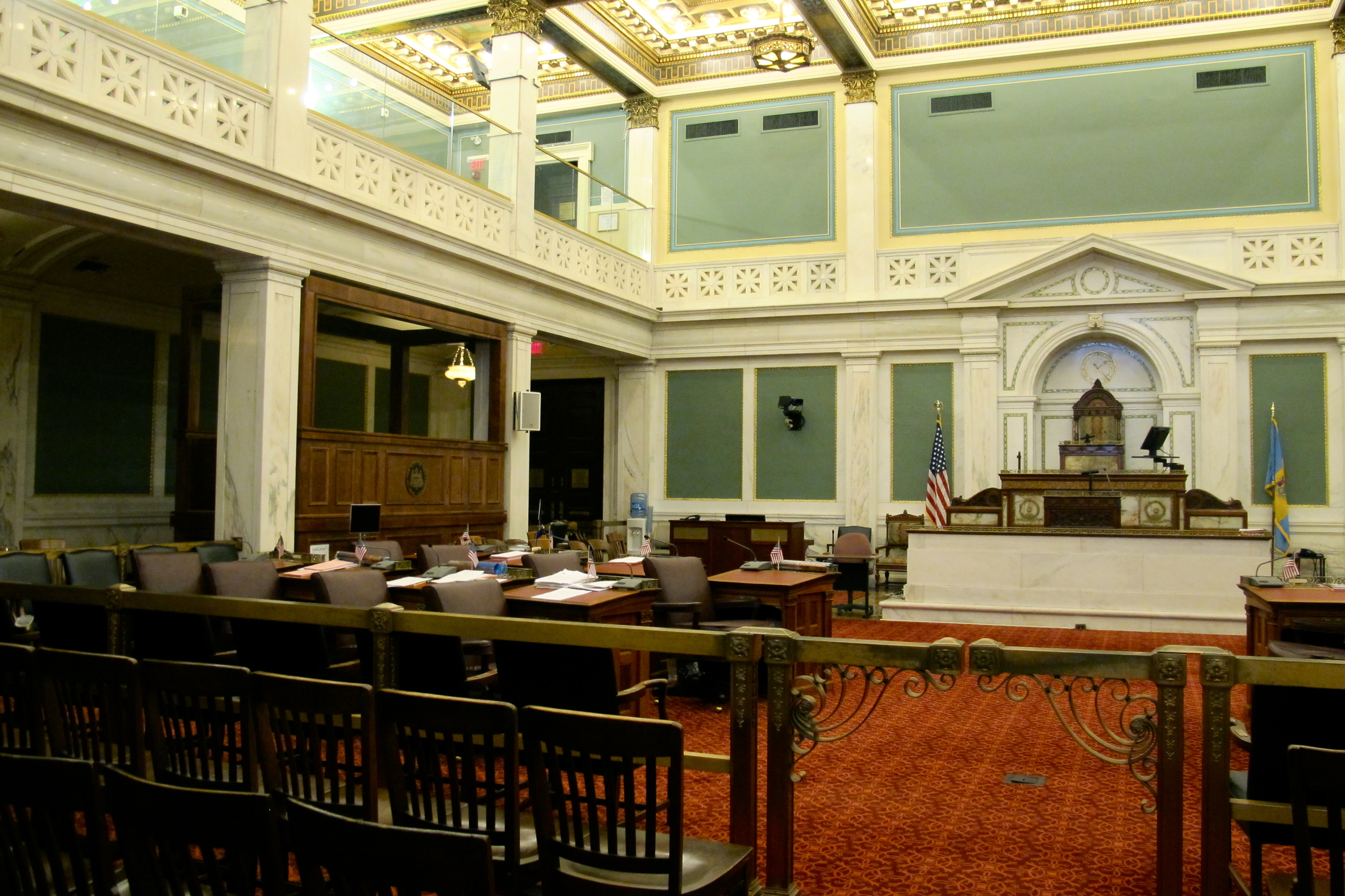The evolution of councilmanic prerogative and what to do about it

Ever wonder how the practice of “councilmanic prerogative,” the process by which 10 district councilmembers control land use and public property decisions in their jurisdictions, came to be? Community contributor John Kromer peels back the modern origins of councilmanic prerogative as we know it and argues that it doesn’t have to be this way forever.
What’s the best way to put an end to the often-criticized councilmanic prerogative? An easy first step: in the upcoming November 3rd election, vote for Mayoral and Council candidates who support term limits for Council members, comparable to the two-term limit that’s associated with the office of Mayor.
The term-limit issue is important because councilmanic prerogative means a lot more than the ability to veto individual development projects. Prerogative also gives a district councilperson control over dozens of small real estate transactions that are brought to Council each year, including the ability to delay approval of any of these transactions indefinitely. With term limits for Council members, opponents of prerogative have an opportunity to reduce its value and to disrupt a tradition rooted in practices that began a half-century ago.
Philadelphia’s Councilmanic Prerogative: How it works and why it matters, the Pew Charitable Trusts’ Philadelphia Research Initiative report authored by PlanPhilly released this past summer, provides a lot of information about prerogative.* But the Pew report doesn’t really address two fundamental questions: How did the property-disposition process get this way? And does it have to be this way forever?
Roots of the Problem
A member of the millennial generation would have a hard time recognizing late-twentieth century Philadelphia. Prior to the mid-1990s, the downtown business district was a high-vacancy area, the citywide housing market was uniformly weak, unsubsidized housing development was almost nonexistent, and homelessness, addiction, and crime were on the rise.
In this environment, property abandonment was increasing, and many vacant houses and lots could be acquired at low or nominal cost. Community development corporations didn’t get started in a big way until the mid- to late-1980s filling a growing void in government services, and little neighborhood planning, other than planning for urban renewal areas or special development districts, took place prior to the 1990s.
Under these circumstances, there weren’t a lot of opportunities for a district councilperson to gain significant political benefit by getting involved in property transactions other than those associated with big economic development projects such as The Gallery or Penn’s Landing. During much of this time, the number of employees in city government was much greater, and the public authorities—Parking, Housing, Redevelopment—were big political patronage destinations. Finding someone a job, making use of a person who had been placed in a patronage job, or making use of connections in order to do someone a favor were probably more politically beneficial uses of a district councilperson’s time.
As Philadelphia’s real estate market began to recover and grow stronger, particularly after the turn of the century, vacant properties started to become a lot more valuable. Unfortunately, however, the mayoral administrations and city councils that held power during those years didn’t figure out a way to encourage investment or other productive uses in these newly valuable properties by facilitating transactions involving city-owned properties. As a result, the existing process is just about as slow and complicated now as it was in the 1970s, when relatively few vacant properties had any significant value.
The Legacy of Vernon Marks
City Council didn’t always have the large and sophisticated staff infrastructure that now exists. In the 1960s and 1970s, each Council member had a few staff members, and these individuals were primarily responsible for carrying out administrative tasks and responding to city-service requests. Few had any significant real estate expertise
Limited Council staff and this lack of expertise created a power-brokering opportunity for Vernon Marks, a former aide to Councilman Cecil B. Moore. Over several decades, Marks staffed what was termed Council’s “Community Development Unit,” as well as the Vacant Property Review Committee. (Marks passed away in 1999.) During the 80s and 90s, Marks became known as a person who could provide Council members with detailed information about property transaction requests, as well as advice about how to respond to these requests. Marks could also brief Council members about developers’ requests to obtain city-administered Community Development Block Grant (CDBG) subsidies that would enable development of the vacant properties that they were seeking to acquire.
A Philadelphia Inquirer article published in December 1989 (“A housing developer’s controversial push for public funds”) provides a good example of the extent of Marks’ influence. The Inquirer reported that Marks had solicited Pennrose Properties to act as developer of two affordable housing projects in North Philadelphia, after which he had facilitated the submission of financing proposals for both projects to the city’s Office of Housing and Community Development. During that time, Marks had held the position of President of the Strawberry Mansion Citizens Participation Council, a community group that Pennrose had agreed to bring into both projects as a nonprofit partner. Marks was subsequently compelled to resign from his position as an officer of the Strawberry Mansion organization following a HUD ruling that his multiple roles constituted a conflict of interest.
The number of staff assigned to the Council President and individual Council members increased during the 1980s and grew substantially during the 1990s, when Mayor Rendell made a practice of accommodating Council President Street in many ways in order to obtain the Council President’s support for legislation for which the Mayor was seeking Council approval. As a result, more staff members with higher levels of sophistication became available to get involved in property transactions—coincidentally, at the same time as vacant properties were starting to become more valuable.
However, in the years following Marks’ passing, neither the city administration nor City Council took steps to rationalize the Vacant Property Review Committee process or to determine how Council staff might assume the role that Marks had played in a more consistent, reliable manner. As a result, the way that property transactions are reviewed and acted upon–or not acted upon–can differ significantly from district councilperson to district councilperson.
Family Disagreements
The past two city administrations have been characterized by protracted disagreements between the Mayor and Council over major issues such as public education, taxes, pension reform, and labor contracts. Because Mayor-Council working relationships remained consistently poor during this time, neither party found the time or had the inclination to work on less challenging issues which, in a more amicable political environment, might have been resolved in a routine way—issues such as managing the kinds of small-property transactions that are most frequently associated with the exercise of councilmanic prerogative.
-
Facilitating small-property transfers was never addressed as a priority issue for the Street Administration’s Neighborhood Transformation Initiative.
-
During the Nutter Administration, Redevelopment Authority Executive Director Terry Gillen received little Council support, and more than a little opposition, in response to her efforts to establish a consistent policy for conducting real estate transactions. Her successor, Edward Covington, resigned following reports of disagreements with the Mayor.
-
During the last two administrations, small-property transactions continued to be conducted by the Vacant Property Review Committee in the shadowy confines of the City Council caucus room.
-
Based on the current, largely inactive status of the nascent Philadelphia Land Bank, it seems doubtful that Mayor Nutter and Council President Clarke ever had a serious conversation about how they might work together to make this new entity successful. (Although by signing the city’s land bank enabling legislation they were the first to approve a codification of the previously informal practice of prerogative.)
Neither of the past two administrations appointed a senior administrator to take responsibility for handling small-property transactions responsibly and efficiently. A person with this responsibility would have proactively maintained communication with district council members in order to anticipate property requests and resolve problems. Adopting an approach of this kind is a lot different from the current status quo, characterized by the authors of the Pew report as the acknowledgment of the councilmanic prerogative as a “fact of life.”
A 21st Century Solution
What can be done to replace this unwritten policy with an approach that’s transparent, efficient, and works well for everyone involved? Unfortunately, getting rid of the council prerogative altogether isn’t going to be politically feasible anytime soon. But here’s what should be done in the short term.
-
The next Mayor should appoint a single person to work with Council members on a full-time basis—as their ally–to facilitate small-property transactions based on the property disposition policies established by the Nutter Administration and the goals of the Land Bank.
-
The Building Industry Association, the Philadelphia Association of CDCs, and other constituency organizations should ask candidates for Council (particularly the non-incumbent candidates) to support a policy of immediate disclosure of the reason(s) for any exercise of Council prerogative.
Over the long term, the best response to councilmanic prerogative is to institute term limits for Council members, allowing them a maximum of two four-year terms, consistent with the mayoral term limit. Although this change can’t happen right away, new Council members will be taking office in January, and several Council candidates expressed support for term limits during their primary election campaigns.
If and when councilmanic term limits take effect, Council members will be less likely to delay property transactions indefinitely without explanation. And then we can look forward to seeing the secret history of the councilmanic prerogative come to an end.
*Note: I was asked to review and comment on a draft of this report.
WHYY is your source for fact-based, in-depth journalism and information. As a nonprofit organization, we rely on financial support from readers like you. Please give today.






